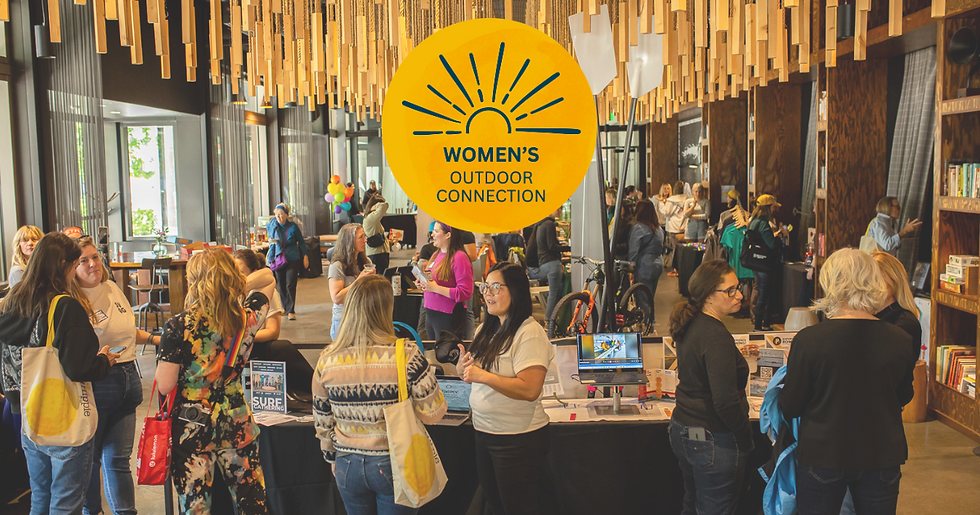The Science of Being Outdoors
- Oct 31, 2025
- 3 min read
October 25, 2025
Breakout Session Leader: Mileva Huljev, Human Nature: a guided sensory experience

Our connection with nature isn’t just emotional — it’s biological. Forest bathing and mindful time outdoors engage every sense, lowering stress and boosting focus. Science keeps confirming what our hearts already know: we feel better when we spend time outside.
Below you’ll find a list of recommended reading, research, and resources for continuing your connection with nature and understanding why it feels so good.
🌿 Websites for the Curious
📚 Excellent Books
The Nature Fix — Florence Williams
The New Science of Everyday Wonder — Dacher Keltner
A Natural History of the Senses — Diane Ackerman
The Lost Art of Reading Nature’s Signs — Tristan Gooley
Braiding Sweetgrass — Robin Wall Kimmerer
The Secret Life of Trees — Peter Wohlleben
What a Plant Knows — Daniel Chamovitz
Intelligence in Nature — Jeremy Narby
The Nature Principle — Richard Louv
Your Brain on Nature — E. Selhub
The Overstory — Richard Powers
The Biophilia Effect — Clemens G. Arvay
Speaking with Nature — Sandra Ingerman & Llynn Roberts
The Songs of Trees — David George Haskell
The Secret Wisdom of Nature — Peter Wohlleben
Finding Sanctuary in Nature — Jim Pathfinder Ewing
The Research: attached is the 48 page PDF lit review of why Nature Therapy is legit: ) And here is some more to keep you reading during the longer nights ahead!
🧠 Research Highlights
Here’s a small sample from the growing body of evidence showing how nature impacts our physiology, mood, and sense of belonging.
Zhou, Meihui, et al. (2025). Nature Exposure and Subjective Well-Being: The Mediating Roles of Connectedness to Nature and Awe. Sustainability 17(12):5406
Li, Q. et al. (2008). Visiting a Forest, but Not a City, Increases Human Natural Killer Activity and Expression of Anti-Cancer Proteins.
LiH, Ding Y, Zhao B, Xu Y, Wei W. (2023). Effects of Immersion in a Simulated Natural Environment on Stress Reduction and Emotional Arousal. Frontiers in Psychology
Meredith GR, Rakow DA, et al. (2020). Minimum Time Dose in Nature to Positively Impact Mental Health. Frontiers in Psychology
White MP, Alcock I, et al. (2019). Spending at least 120 minutes a week in nature is associated with good health and wellbeing. Scientific Reports
🌎 Different Environments, Different Benefits
Arid Landscapes
Nature and Wellbeing in the Arid Landscape — Beery & Ode Sang (2019)
A Qualitative Exploration of the Wilderness Experience as a Source of Spiritual Inspiration — Fredrickson & Anderson (1999)
Grasslands / Meadows
Psychological Benefits of Greenspace Increase with Biodiversity — Fuller et al. (2007)
Nature and Mental Health: An Ecosystem Service Perspective — Frumkin et al. (2020)
Blue Spaces (Water Environments)
Blue Mind — Wallace J. Nichols (2014)
Blue Space: The Importance of Water for Preference, Affect, and Restorative Experience — White et al. (2010)
Urban & Park Spaces
Green Space, Urbanity, and Health — Maas et al. (2006)
Nature Walks as a Part of Urban Wellbeing — Pasanen et al. (2020)
Happy biophilia connections,
Mileva Huljev
Human Nature: a guided sensory experience



Comments